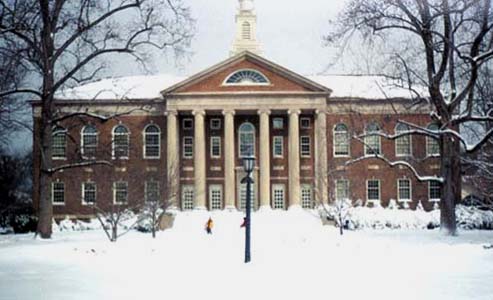

COURSE NOTES -
WEEK FOUR - October 24-30, 2005
Blackboard for posted readings. Return to Schedule
Four readings: Bruce and Kranich and Komito and Marcum
This week I have posted four readings for your enjoyment. Below are a few comments and thought questions on the Kranich report, a very powerful and thought-provoking document. I posted some comments about the Komito article on the blog for you to comment on.
Kranich - The Information Commons. Nancy Kranich is a former
president of the American
Library Association (2000-2001). Her long term interest is in the role of
libraries in democracies. She has conducted presentations, written
articles and been
interviewed many times about her interests and experience in such
topics as advocacy, intellectual freedom, digital libraries,
information policy, scholarly communication and legislative action for
librarians. Among her many publications is Libraries and Democracy:
The Cornerstone of Liberty (Chicago, ALA, 2001).
The article I asked you to read should be of interest to
all of you
as, in this report, Kranich defines and places in context many of the
ideas about open source activities, the wikipedia, and other collaborative
sharing ventures. She groups all these ventures into the idea of "the
Information Commons." The reading may look long but I believe it is
well-structured to enable you to enter it at several different places to
to find items of value for you. Many examples of information commons are
provided throughout the report -- all with brief descriptions and a link
to each agency's website for further information.
Kranich is a passionate advocate for such projects and
sees their
importance in a world (speaking chiefly of the United States here) that
where information is increasingly becoming commodified. Are you familiar
with digital rights management (DRM) techniques and their threat to
such copyright customs as "fair use", "first sale" and "public domain"?
Do you see these issues as purely American issues or do you see
implications for other countries as well? In the debate between
information as a public good and information as a commodity, where do
you stand?
I posted some of the questions about information policy
that Komito
poses in his "Regulation of Information" chapter. I invite you to select
any one of these questions for a comment.
Revised Oct. 24, 2005.
If you have questions or suggestions, please
contact
Evelyn Daniel